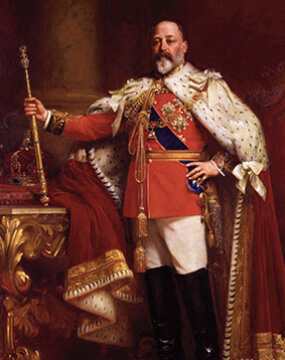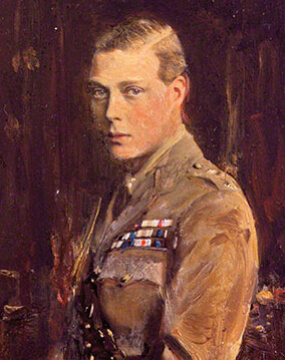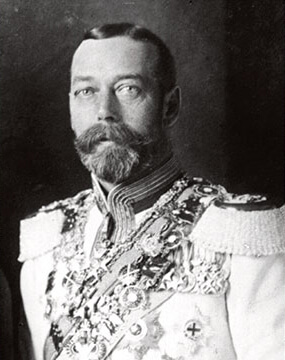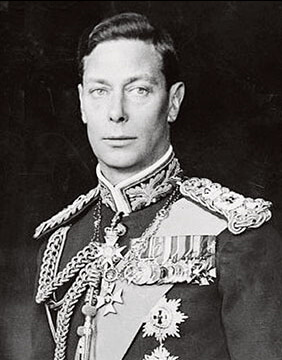Kings and Queens of England: Part IV

Edward VII (1841-1910)
Reign: 1901-1910
House: Saxe-Coburg and Gotha
- He was informally addressed as “Bertie,” a reference to his late father Prince Albert
- While touring North America in 1860, he laid the cornerstone at Canada’s Parliament Hill, spent three days at the White House, and paid respects to George Washington at Mount Vernon
- He negotiated alliances with Russia and France, earning him the nickname “Edward the Peacemaker”

Edward VIII (1894-1972)
Reign: 1936-1936
House: Windsor
- At 326 days, he is the shortest-reigning monarch in United Kingdom history
- He broke a longstanding tradition of monarchs facing in the opposite direction of their predecessors on coinage so his hair part would show
- No coins with his likeness were released and only rare pattern pieces exist

George V (1865-1936)
Reign: 1910-1936
House: Windsor
- He changed his royal house’s name from “Saxe-Coburg and Gotha” to “Windsor” in 1917 due to anti-German attitudes
- Although the Empire reached its greatest size during his reign, the end of World War I marked the beginning of its decline
- In 1931 he called for a “National Government” (a coalition of the major political parties) to balance the budget and restore confidence during the Great Depression

George VI (1895-1952)
Reign: 1936-1952
House: Windsor
- His success battling a stammer to address his people at the onset of World War II is featured in the film “The King’s Speech”
- Initially uncomfortable with Winston Churchill as Prime Minister, the two forged a close friendship and met every Tuesday to discuss the war
- As the British Empire decreased in size and influence, he was the first monarch to be titled “Head of the Commonwealth”
Did You Know?
Women’s suffrage in the United Kingdom became a national movement during the Victorian Era. The Representation of the People Act 1918 ensured voting rights for women aged 30 or over (the voting age for men was 21). It was not until the Representation of the People (Equal Franchise) Act 1928 that women were granted equal voting rights.
|
|
Click on the items in the case image below for an enhanced view

